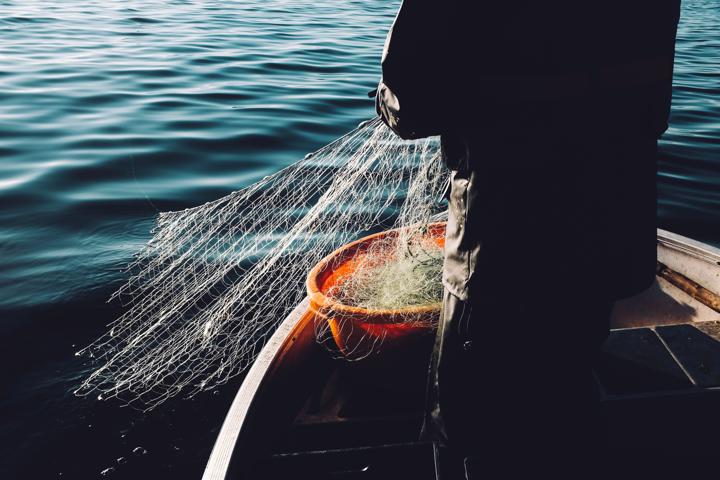Transboundary Marine Spatial Planning and Sustainable Blue Economy Course (Asia-Pacific)

What will you learn?
Objectives of the training include:
- Understanding of what marine spatial planning is about, what benefits it can have, and what results you can expect;
- To present the basic steps of MSP process, actors and responsibilities, legislation and finances needed, and the MSP tools and techniques, with a special emphasis on LMEs and transboundary and cross-border contexts for MSP;
- Awareness of what has worked and what has not in MSP practice around the world;
- Increase collective capacity to respond to change and challenges in coastal and marine environments and find practical and sustainable solutions to marine resource use through Marine Spatial Planning and Sustainable Blue Economy in the transboundary context of Large Marine Ecosystems;
By the end of the course (online and face-to-face), participants will:
- Have a broad understanding of the key elements that constitute Marine Spatial Planning at national and LME/transboundary scale, and be able to relate these to the organisations and countries in which they work;
- Understand the relevance of marine spatial planning as a topic for coastal and marine development and management;
- Be able to balance interests of different stakeholders on the basis of clear and transparent criteria;
- Be able to start applying Marine Spatial Planning in their own specific legal, governance and administrative contexts.
Who is delivering the course?
This activity centres around Component 3 of the GEF LME:LEARN project, specifically Activities 3.5 and 3.6 which focus on the development of training modules and delivering training sessions which are regionally distributed to include GEF funded LME, ICM, MPA, and MSP project staff and linked strongly to the Regional Networks.
The activity focal points include the GEF LME:LEARN Project Coordination Unit and the Intergovernmental Oceanographic Commission of UNESCO (IOC-UNESCO).
For the last decade, IOC-UNESCO has been instrumental in implementing the concept of ecosystem-based management through its Marine Spatial Planning approach. IOC is in a unique international position to assist countries move toward ecosystem-based management of the marine environment through MSP.
As the world moves toward the implementation of the Sustainable Development Goal on Ocean (SDG14), as part of the Agenda 2030, more than ever, Marine Spatial Planning and generally ecosystem-based management provide an effective framework to guide sustainable development of the oceans and coasts. Science-based, integrated, adaptive, strategic and participatory are all core values that IOC-UNESCO promotes in the context of Marine Spatial Planning.
Language of the course
This course is in English.
Interpretation in other languages will not be provided.
How will it be delivered?
Online (14 January-16 February 2019 via the UNDP Cap-Net Virtual Campus)
The course starts in January 2019 with a set of online modules on the Cap-Net Virtual Campus. All participants will have to undertake the 4-week online course as a prerequisite to attend the face-to-face training. Participants will have to dedicate at least 2-3 hours per week to go through the prescribed content and short quiz.
This blended approach to training aims to help all participants go through the necessary theory and ensure that they are all on the same level prior to undertaking the face-to-face training and hands on exercises.
Successful applicants will have to register and pass the online course to attend the face-to-face training.
Face-to-Face (19-21 February 2019)
This course component applies the teaching messages from the online modules through interactive exercises and regionally appropriate casework. At the face-to-face event in Vietnam, participants will engage in a series of exercises and role-playing to harness what they have learned online and how to apply that knowledge in their own projects or work.
Who should attend?
The training is intended for professionals (project managers, chief technical advisors, or project staff) responsible for planning and management of coastal and marine areas. Decision makers, practitioners and technical staff from governments and academia who are responsible for management of marine and coastal areas are also encouraged to participate.
What are the criteria for participation?
Participants must:
- Be proficient in English (working level/technical);
- Be staff (not consultants) of Large Marine Ecosystem, Marine Protected Area, Integrated Coastal Management, Fisheries, Climate Change Adaptation or Marine Biodiversity projects and national officials from institutions closely working with the LME projects;
- Have either a good background in spatial planning and/or integrated coastal zone management;
- Be actively engaged in coastal and marine management and planning or related components of their projects or work;
- Commit to taking the 4 week online course and passing all modules
Space for the course is limited and no late applications will be accepted. Furthermore, certificates will only be issued to those who have completed both the online and face to face training.
How to apply for the course
Please nominate one (1) staff member of your project or organisation via email with the title “Asia-Pacific Transboundary MSP Training” to Natalie Degger (natalie@iwlearn.org), Alejandro Iglesias Campos (a.iglesias-campos@unesco.org) and Ivica Trumbic (i.trumbic@unesco.org) by 21 December 2019.
Applications or nominations must include the following:
- The name and email address of the applicant;
- The name of the project (including the GEF ID), or institute she/he works for;
- A short CV of the applicant or nominee;
- One paragraph in English on how the training will help enhance their contribution to the project they work on and how it will advance implementation activities in managing marine and coastal areas
- Indication if financial support to attend the face-to-face training is required (*)
Participants will be notified via email on Monday 7 January 2019 whether their application has been successful or not. Furthermore, details on how to register for the course on the UNDP Cap-Net Virtual Campus, as well as additional information on the face-to-face training, will be provided.
(*) The GEF LME:LEARN project has some funds to support the participation of successful applicants to attend the face-to-face training in Vietnam. These will be considered on a case-by-case basis.

























